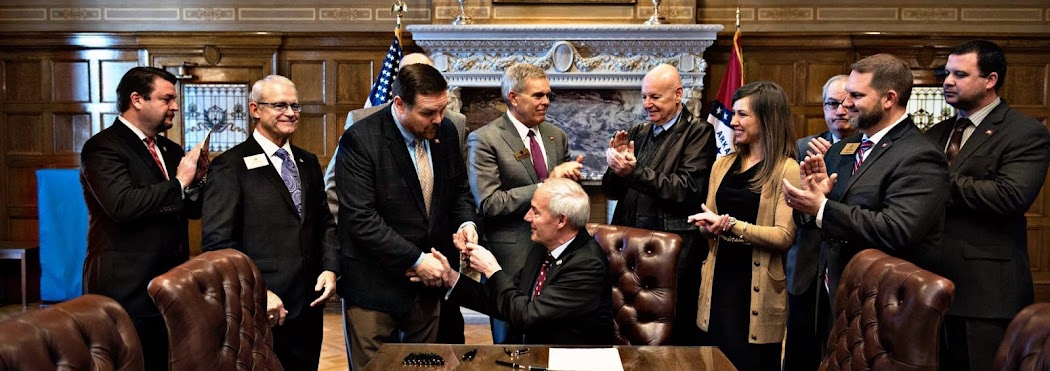Jeremy
Anders, a street preacher charged with violating Arkansas’ “harassment”
statute, finds himself at the center of a crucial legal battle. His case raises
important questions about the extent of constitutional protection afforded to
religious speech and the potential overreach of laws that restrict it. In this
article, we will explore why Jeremy Anders should win his case, citing the
strong legal foundations that support his right to express his religious views
freely.
Religious speech
is deeply entrenched in the constitutional bedrock of the United States. The
First Amendment provides supreme legal protections to those who are called to
do the work of the evangelist. As established in Texas v. Johnson, the
government cannot prohibit the expression of an idea simply because it may be
offensive or disagreeable to society. The dissemination of religious beliefs
and preaching the Gospel are recognized as age-old types of evangelism with a
high claim of constitutional protection, as stated in Murdock v.
Pennsylvania.
The
Supreme Court recognizes that the dissemination of individual opinions on
matters of public interest is an unalienable right, protected by the First
Amendment. This right creates a presumption of invalidity against laws that
limit free speech, as affirmed in Curtis Pub. Co. v. Butts.
Consequently, any law that restricts speech must be carefully crafted and
narrowly drawn to serve legitimate and constitutional legislative goals, as established
in Broadrick v. Oklahoma.
Oral
speech is highly protected under the Free Speech and Free Exercise Clauses of
the First Amendment. Religious speech, including preaching and evangelizing,
receives dual protections. The Supreme Court’s decisions in Watchtower Bible
& Tract Soc’y of N.Y., Inc. v. Vill. of Stratton, Heffron v. Int’l Soc’y
for Krishna Consciousness, Inc., Edwards v. South Carolina, and Parks
v. City of Columbus all recognize that preaching and similar activities are
protected forms of speech under the First Amendment.
In
addition to the protections offered by the U.S. Constitution, Arkansas State
Constitution also guarantees broad protections for speech and religious free
exercise. Article II, Section 6 emphasizes that the free communication of
thoughts and opinions is an invaluable right of every individual. Article II,
Section 24 affirms the natural and indefeasible right to worship according to
one’s own conscience, with no human authority having the power to control or
interfere with this right.
Arkansas
has enacted the State Religious Freedom Restoration Act, which explicitly
prohibits the government from substantially burdening an individual’s exercise
of religion, even if the burden arises from a generally applicable rule. The
burden is on the government to demonstrate that its actions are in furtherance
of a compelling governmental interest and the least restrictive means of
achieving that interest, as stated in AR Code § 16-123-404.
Jeremy
Anders is charged with violating the Arkansas “harassment” statute, ACA
5-71-208. Section (a)(5) of the statute, on its face, appears to be
unconstitutional. The Supreme Court has established well-defined and narrowly
limited exceptions to unprotected speech, which include obscenity, defamation,
fraud, incitement, true threats, and speech integral to criminal conduct.
Section (a)(5) criminalizes a broad range of non-obscene, non-threatening
speech without any recognized exemptions, making it unconstitutionally vague which
encourages arbitrary enforcement.
Jeremy
Anders’ speech falls within the realm of protected religious expressions. The
government can only burden religious speech if it serves a compelling
governmental interest, as required by AR Code § 16-123-404. The government’s
interest in shutting down Anders’ expression falls short of this compelling
standard. Moreover, the government failed to present evidence that their
actions were the least restrictive means necessary to further their interest.
Jeremy
Anders’ case presents a vital opportunity to reaffirm the fundamental
principles of free speech and religious freedom enshrined in the U.S. and
Arkansas Constitutions. The strong legal protections that underpin religious
speech, both at the federal and state levels, provide a solid foundation for
Mr. Anders’ defense. Section (a)(5) of the harassment statute is overbroad and
violates the First Amendment by criminalizing protected speech. It is
imperative that the court recognizes the significance of upholding the
constitutional rights of individuals like Jeremy Anders, ensuring the
preservation of free expression for all citizens.

